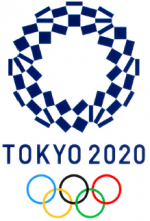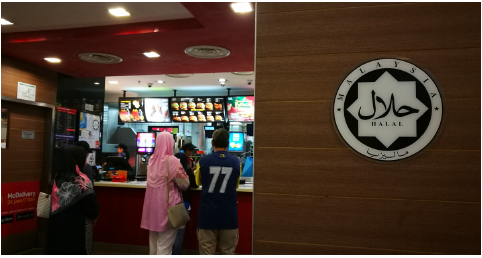
This site
is mobile
responsive
Over the years, the Olympic Games have brought about economic and social benefits to the hosting nations. With the approaching 2020 Tokyo Summer Olympics and Paralympic Games, Japan is expected to receive up to 40 million visitors, and the Japanese Government has been steadily opening up their economic borders for new business opportunities. One promising area is the halal food and beverages (F&B) industry.
Focusing on the summer games event alone, Japan will be hosting up to 450,000 athletes and delegates from all over the world, with 40% consuming and focusing on halal food products. This opens up a USD300 million worth of market translated in numerous segments in the food industry, particularly on halal ready-toe at meals (RTM), and nutritional and high energy food products. It is estimated that the sports delegations will need up to 140 million serving of halal meals during their stay at the Athletes Village.
Recognising the massive potential of this emerging halal market, the Malaysian Government is steadily enriching the halal agenda to penetrate the Japanese market, 2020 Tokyo Olympic Games: Halal Business Opportunities December 2019 | 7 in terms of capacity development of local manufacturers and service providers as well as securing economic partnership through Government-to- Government (G2G) agreements. Several key strategic thrusts have been identified as enablers to realise the aspiration of having Malaysian F&B industry players tap into this market.

One of the central enablers is Malaysia’s holistic halal certification and standards. Being a modern and progressive Islamic country with an open economy and a well-developed physical and institutional infrastructure to support the whole halal ecosystem, Malaysia has the edge in the development of the halal industry. Malaysia currently houses 13 halal and halal related standards covering food products, cosmetics, pharmaceutical and logistics. This Halal certification can be regarded as an extension of the existing standards in manufacturing and related services sector such as Good Manufacturing Practice (GMP) Hazard Analysis and Critical Control Points (HACCP) and Food Safety Standards (FS2200).
With this globally recognised halal certification and standards, local industry players can leverage its reputation to showcase that their products and services are at par with global standards. Adhering to the principles of halal is not just being permissible according to the Islamic law, but it is in line with other global values such as using ethically sourced materials, hygienic, environmentally friendly and safe manufacturing practices as well as producing nutritionally balanced products. It is not surprising that Japan has agreed to sign a Memorandum of Cooperation (MoC) with Malaysia on Halal Cooperation on 26 November 2018 and to be the only country to secure such co-operation, it serves as a testament of high standards practised by the country in regards to halal.
The second enabler is providing the right products to the targeted consumers – the athletes and visitors. As the demand for halal food peak during the Olympic Game season, fast and fresh alternatives food will be preferable compared to traditional processed food. Hence, halal central kitchen and halal ready-to-eat products will be the business model of choice in tapping this market potential.
Malaysian F&B players are encouraged to diversify into ready-to-eat meals–shelf-stable fresh food in advanced packaging such as retort pouches that will appeal to a broader range of consumer given its convenience. Simultaneously, central kitchens dedicated to preparing halal meals will serve almost 140 million fresh halal meals during the event. Continuous research and development (R&D) are essential in developing these products to meet the nutritional demand and taste preferences of the end consumers. Malaysian producers need to incorporate local Japanese taste into their end products, indirectly offering a halal option for Japanese consumers.
As at September 2019, MIDA has recorded nine ready-to-eat meals manufacturers that have the potential of tapping into this market. Some of these companies have been facilitated by MIDA to enhance and grow their business to meet the demands of both
local and international markets. MIDA offers assistance to support companies in their efforts to adopt high technologie.
In essence, 2020 Tokyo Olympic Games is a strategic platform to showcase what Malaysia has to offer to the world. The success in capturing this market will be a testament of Malaysia prowess in the global halal industry and indirectly will open up new opportunities in different markets. Once the reputation is established, Malaysian halal F&B manufacturers will be able to build their portfolios in Japan. This is crucial as the demand for halal food products in Japan is forecasted to grow every year driven by the country’s target of attracting almost one million Muslim tourists annually. s into their production operations and their product packaging. This is essential to differentiate them from other food manufacturers, giving them a boost to penetrate overseas markets.
Malaysian F&B manufacturers can also explore offering halal ready-to-eat meals to convenience stores chains like Lawson, Family Mart and Seven Eleven all around Japan. With more than 50,000 stores in the country, the potential of this halal segment is enormous. Should this vision materialise, Malaysia would be able to achieve the target of RM3.7 billion exports of halal products into Japan by end of 2020.
Moving forward, MIDA will continue to facilitate F&B manufacturers to grow and expand, beyond the limits of the local market. Apart from MIDA’s efforts in providing incentives and grants, business matching opportunities are also set up for companies seeking joint venture (JV) partners as an avenue to gain tract in the industry and increase volume in their production to cater for greater markets. Companies are urged to adopt automation and undertake high technologies and high value-added activities in their production. This is in line with the national Industry4WRD policy to further increase the productivity and number of high-skilled workers in the manufacturing sector, including the F&B industry. With these support in place, it is hoped that it will ensure sustainable development of the halal F&B sector as a whole.
